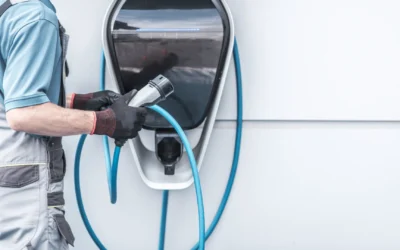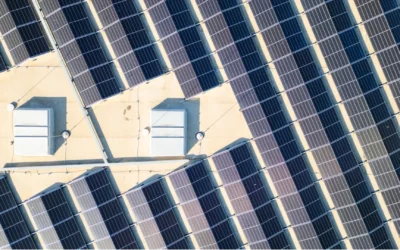- Belgium’s installed capacity of solar energy is greater than 5 GW and is expected to reach 10 GW in the next 10 years.
- In 2020, Belgium’s offshore and onshore wind energy accounted for 4.6 GW of the installed capacity.
- Renewable power producers are struggling with negative prices in Belgium because of overproduction.
Under the National Energy and Climate Plan, Belgium set targets to reduce greenhouse gas emissions from the energy sector by 35% by 2030 (from 2005 levels), to achieve 17.5% renewables in gross energy consumption and to reduce energy demand. In pursuit of these goals, Belgium phased out coal generation in 2016 whereas offshore wind generation installed capacity has reached 2.23 GW in 2020 followed by a plan to install additional 2.2 GW of offshore wind capacity by 2030.
Generation Mix
In Belgium, electricity demand is mostly met by nuclear followed by natural gas. See figure 1 for the breakdown of generation sources.

Figure 1: Generation mix of Belgium in 2020.
Source: elia
In 2020, 39.1% (31.7 TWh) of Belgium’s electricity demand was met with nuclear power. Nuclear generation was lower than in 2019 when it accounted for nearly half of country’s generation at 48.7%. The drop of nuclear power’s share in the generation mix was largely due to scheduled and unscheduled maintenance work but Belgium plans to phase out all its nuclear plants by 2025.
Electricity generation from natural gas accounted for 34.4% (27.8TWh) share in the electricity generation mix and that number has remained largely stable in recent years.
For renewables, generation from wind (offshore and on shore generation) accounted for 13.3% (10.8 TWh) with onshore wind accounting for 5.0% (4.1 TWh) and offshore 8.3% (6.7 TWh). Solar and biomass was 5.3% (4.3 TWh) and 2.5% (2.0 TWh) of the generation mix respectively.
Historically, Belgium has imported electricity and imports had increased especially when the production from nuclear power plants was decreased. But, in 2020, mainly due to the drop in demand as a result of Covid-19, and also due to an increase in generation from renewable resources, there was no net electricity imported.
Growth in renewable generation
During the last decade, especially 2009 onwards, Belgium has had continuous growth in the installed capacity of renewables including offshore wind, onshore wind and solar. Onshore wind installed capacity increased from 577 MW in 2009 to 2438 MW in 2020. Offshore wind installed capacity grew from 32 MW to 2,254 MW during the same period. Substantial growth was also observed in solar energy which grew from 386 MW in 2009 to 5,646 MW in 2020.
Belgium’s installed capacity of solar energy is close to 5 GW and is expected to reach 10 GW in 10 years. Belgium’s offshore and onshore wind segment accounted for 4.6 GW in 2020 and by 2030 offshore should reach 4.5 GW and onshore is expected to surpass 4 GW by 2030.

Figure 2: Renewable installed capacity of Belgium.
Source: IRENA
Episodes of Overproduction and Limitations of Nuclear Plants
Belgian electricity grid is struggling with negative prices because of overproduction of electricity. Electricity prices dropped below zero several times in the spring when there was sunshine, the wind was strong and nuclear power plants were operating at rated capacity. During a weekend in March, earlier this year, Belgium required 7-8 GW of electricity to meet the demand and nuclear power plants generated 6 GW, leaving an excess of renewable electricity generation.
Interconnections with other countries faltered and prevented the export of the surplus driving electricity prices into negative. The producers had to pay consumers to use the excess electricity and wind turbines were occasionally shut down to avoid the excessive overproduction. This situation creates uncertainty in the market and incurs financial losses especially to the growing renewable sector in the country.
Looking Ahead
Currently a significant portion of Belgium’s electricity demand is met by nuclear power plants but the hurdle with the nuclear generation is that these plants are base load plants which are not flexible. This complicates the integration of renewables in the grid. Gas fired plants are peak load plants which have the capacity to ramp up and ramp down electricity generation at a faster pace, but the installed capacity of gas fired generation has stayed almost the same over the years in Belgium.
As there is further growth in the renewable generation in the country, Belgium will need to install plants which have the required load following capability. Belgium’s ability to employ solutions such as peaker plant with lower emissions, a feature in latest gas turbines, as well as long duration energy storage technologies and more reliable grid interconnections will determine if they are able to manage the excess electricity production.
Service Overview
More about our Power Grid Market Research
Recent Insights
Key Strategies for EV and EVCI Expansion
The authors, Mike Sheppard, CEO of PTR Inc. & Zainab Shah, Lead EVCI Analyst - Americas, highlight how the U.S. EV and charging infrastructure sectors are navigating a new era shaped by policy shifts and economic pressures. Following the rollback of key federal...
Harnessing the Sun: The Middle East’s Shift to Solar Power and Storage
In this article, PTR's CPO, Saqib Saeed, and Research Analyst, Siddiqa Batool, explain how the Middle East is accelerating its transition toward renewable energy—particularly solar power—supported by a growing focus on energy storage. Countries like Saudi Arabia, the...
Transforming Utilities: The Role Of Digitalization In Shaping The Future Of Energy
Authored by Saad Habib and Hassan Zaheer - In a world where electricity demand is rising—fueled by economic growth, electrification of transport and heating, and rapid renewable integration—utilities face mounting pressure to modernize. Traditional energy systems are...
Advanced Distribution Transformers: Strengthening Europe’s Grid Stability
In the article, the author Maheen Mahmood highlights how Europe’s energy transition is transforming the distribution transformer market, driven by regulatory policies, renewable energy expansion, and advancements in transformer technology. The shift away from fossil...



